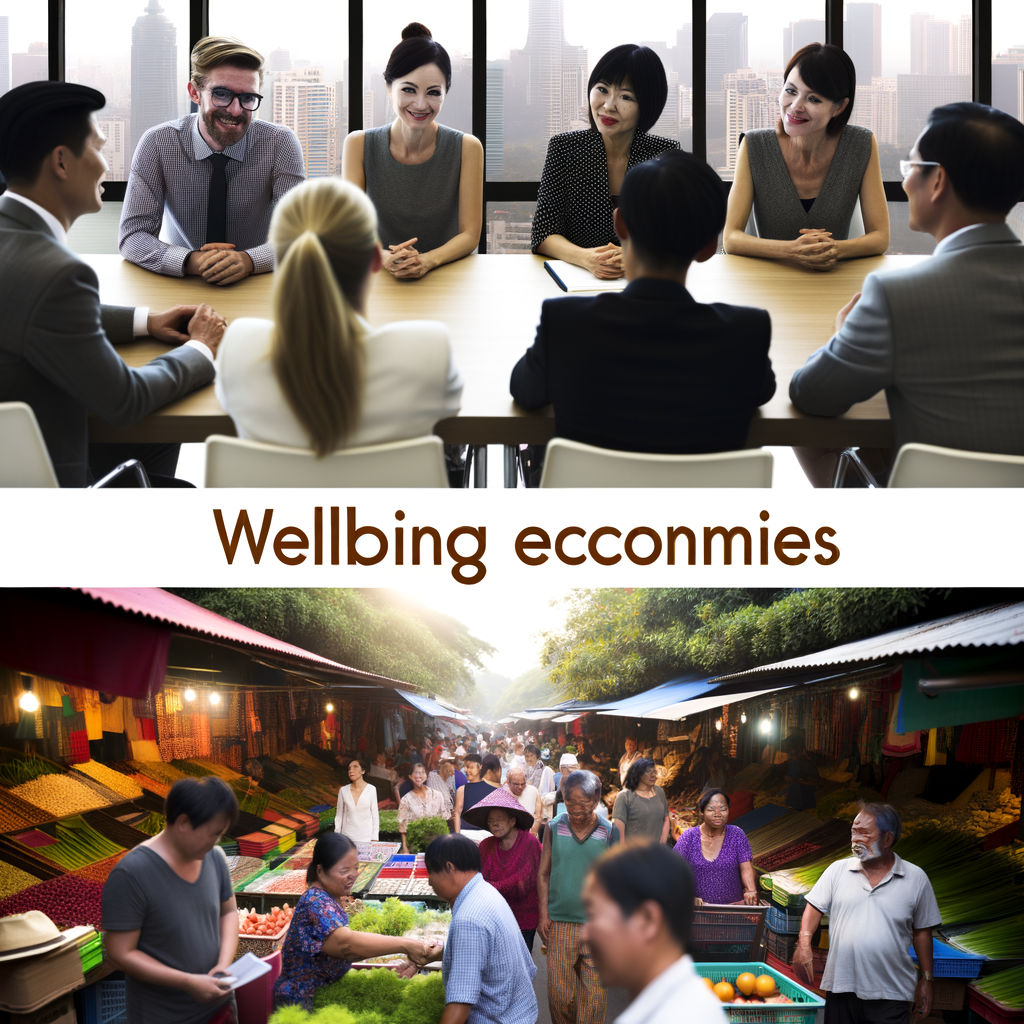In recent years, the global economic landscape has seen a significant reevaluation of what constitutes progress and prosperity. Traditional metrics like Gross Domestic Product (GDP) have long been the benchmark for economic success, but they fail to capture the quality of life and wellbeing of citizens. In Asia’s emerging markets, a notable shift towards “wellbeing economies” is gaining momentum. This paradigm emphasizes holistic measures that account for environmental sustainability, social equity, and quality of life rather than solely financial output. This article explores the motivations behind this shift and its implications for sustainable growth in the region.
Evaluating the Shift from GDP to Wellbeing Metrics in Asia
The limitations of GDP as an indicator of national success have become increasingly apparent, especially as countries face complex challenges such as environmental degradation and social inequality. In Asia, nations like Bhutan have pioneered the concept of Gross National Happiness (GNH), which prioritizes community well-being over mere economic output. This initiative has inspired other emerging markets to reconsider how they assess progress, leading to the development of alternative metrics that encompass health, education, and environmental sustainability. As governments recognize that a narrow focus on GDP can perpetuate cycles of poverty and ecological destruction, they are adopting more comprehensive frameworks that aim to improve the overall quality of life.

Emerging markets in Asia are becoming laboratories for innovative wellbeing metrics. Countries like New Zealand have also influenced this movement by incorporating wellbeing indicators into policymaking. In Asia, the adoption of such systems varies, with some countries implementing national wellbeing strategies, while others opt for pilot programs in specific regions. This decentralized approach allows for flexibility and adaptability, which are crucial in addressing the unique socioeconomic and cultural contexts of each nation. The growing interest in wellbeing economies reflects a broader societal recognition that true progress extends beyond material wealth to include emotional and social dimensions of life.
However, the shift to wellbeing metrics is not without challenges. Establishing reliable data collection systems and ensuring that these metrics are integrated into existing economic frameworks requires significant political will and investment. Moreover, there is the risk of oversimplification: distilling complex social issues into quantifiable measures can lead to misleading conclusions if not approached with caution. Nevertheless, the momentum towards wellbeing economies in Asia is gaining traction, fueled by increasing public demand for policies that prioritize human and environmental health over purely economic growth.
The Impact of Wellbeing Economies on Sustainable Growth
The transition towards wellbeing economies has profound implications for sustainable growth in Asia’s emerging markets. By prioritizing social and environmental indicators alongside economic ones, these nations can create more resilient economic systems that are better equipped to withstand global challenges such as climate change and income inequality. For instance, investments in renewable energy, healthcare, and education not only enhance the quality of life but also build the foundations for long-term economic stability. This alignment of economic policies with wellbeing principles encourages a shift away from exploitative practices toward more sustainable models of growth.

Moreover, the focus on wellbeing often fosters greater community engagement and participation in decision-making processes, leading to policies that resonate more with the populace. When citizens feel that their voices are heard and their needs are prioritized, it engenders a sense of ownership and accountability, which in turn can drive economic innovation and resilience. As emerging markets in Asia embrace this participatory approach, they are likely to experience a surge in social cohesion and trust, both of which are critical for sustainable development in an increasingly interconnected world.
Finally, the adoption of wellbeing economies is likely to enhance international competitiveness. As consumers and investors become more socially and environmentally conscious, businesses that prioritize sustainability and quality of life are likely to gain a competitive edge. This shift toward ethical consumption and investment presents an opportunity for Asian emerging markets to differentiate themselves on the global stage. By aligning their growth strategies with the principles of wellbeing, these nations can attract foreign investment and enhance their reputations, thus fostering a more sustainable and inclusive economic environment.
The rise of wellbeing economies in Asia’s emerging markets signifies a transformative shift in how economic success is conceptualized and measured. By moving beyond GDP to embrace holistic metrics of wellbeing, these nations are not only addressing the shortcomings of traditional economic indicators but also paving the way for sustainable growth that prioritizes quality of life and environmental stewardship. Although challenges remain in implementing these new approaches, the potential benefits are enormous. The focus on wellbeing not only enhances resilience and community engagement but also sets the stage for a more equitable and sustainable future, positioning Asia’s emerging markets as leaders in the global shift toward a more inclusive economic paradigm.



